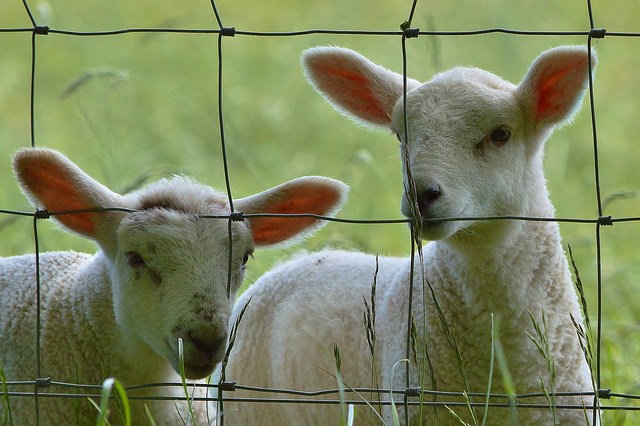The Easter break is a great time to enjoy the outdoors with your family and friends.
Public Health England (PHE) encourages people to enjoy the countryside during springtime, especially engaging in physical activity which has a positive impact on your health and quality of life
At this time of year, as people are starting to venture outdoors more, we typically see an increase in gastro-intestinal infections associated with these activities including farm visits.
In 2017 between January and March there were 20 cases of Cryptosporidium and 19 cases of Cryptosporidium for the same period for 2018 with potential links to a farm. Cyptosporidium is a disease that causes mild diarrhoea.
With this figures in mind, it’s a good time to remember that washing hands properly after using the toilet and before eating food is a healthy habit to adopt.
We know that having the right hand washing facilities at the right height and in the right place is particularly important to encourage hand washing. The best farms in the South West have facilities based in a practical place and hot water and soap readily available.
And to make it easier down on the farm to time how long you have washed your hands for, simply recite a single verse of nursery rhyme favourite Old Macdonald which takes around 20 seconds, children should always be supervised when washing their hands.
Its also important to be aware that lambing season runs from January – April so if you are pregnant and visiting a farm during Easter, it’s important to remember to avoid close contact with lambs and sheep.
We know that some infections can be passed from sheep to humans and if a pregnant woman becomes infected, it could harm her and the unborn child.
Dr Toyin Ejidokun, health protection from Public Health England South West said:
“Visiting a farm is an enjoyable and educational experience for many people, particularly children. However, visiting a farm carries a small risk of catching infection from animals or the environment.
“Farm animals can be the source of several bugs that can be passed from animals to humans and cause illness. Some can be particularly serious for children or pregnant women.
“Infection can be picked up from the animal’s body, its poo or from areas where animals have recently been. If the germs are on your hands, you could accidentally pass them to your mouth. You can’t see the germs, so your hands may appear clean.
“Washing your hands thoroughly with soap and hot water immediately after you have had contact with animals will reduce the risk of infection. Hand gels or wipes are not a substitute for washing your hands with soap and running water although they are better than nothing if soap and running water is not available.”
Scott Mears, Teacher at Fairfield High School, Bristol said:
“We know how enjoyable a farm visit can be and we encourage our families to visit farms. We love hearing about what children have been doing while away from school in the Easter holidays. However, visiting a farm carries a small risk and we want to help play a part in reminding families to take small measures to protect their children.
“When our school takes children out of the school setting, we carry out a risk assessment to make sure the children are safe while in our care and away from the school environment. On farm visits, we make sure children wash their hands with soap and water after touching animals and before eating food. We also ask that children do not to eat sweets, crisps or chewing gum while walking around the farm.
“We know it’s often easier to supervise young children but older secondary aged children may need a little cajoling and this is where it might be beneficial to explain the risks from animals and the environment at farms and how they can be picked up from touching the animal, it’s faeces or the environment.
“We wish all our families a happy, healthy Easter.”
David George, Spokesperson for National Farmers Union said: “The NFU is passionate about educating young people about food and farming. We know how rewarding and educational farm visits are and, by just taking the simple precaution of washing their hands after they have had contact with an animal or farm environment, families can rest assured that their visit won’t result in any unwelcome illness.”
What to do when visiting a farm
Following the simple rules listed below will help to keep you and your children safe from infections that may be found on open farms. Pregnant women need to take particular care as infections acquired from animals can be harmful to them and their unborn baby.
Do wash your hands thoroughly with soap and water after you have touched animals, fences or other surfaces in animal areas.
Do wash your hands thoroughly with soap and water before eating or drinking.
Do remove and clean boots or shoes that might have become soiled and clean pushchair wheels. Then wash your hands thoroughly with soap and water.
Do supervise children closely to ensure that they wash their hands thoroughly.
Do eat and drink in picnic areas or cafes only.
Do not put hands on faces or fingers in mouths while petting animals or walking round the farm.
Do not kiss farm animals or allow children to put their faces close to animals.
Do not eat or drink while touching animals or walking round the farm. This includes not eating sweets, crisps or chewing gum.
Do not eat anything that has fallen on the floor.
Do not use gels or wipes instead of washing hands with soap and water. Gels and wipes do not remove bugs in dirt.
If you are planning a school or group visit to a farm, you also need to make sure that you’ve considered all the risks and taken steps to manage them. Guidance is available to help schools and teachers do this.
You can join us on our social media pages, follow us on Facebook or Twitter and keep up to date with whats going on in South Devon.
Got a news story, blog or press release that you’d like to share or want to advertise with us? Contact us





























